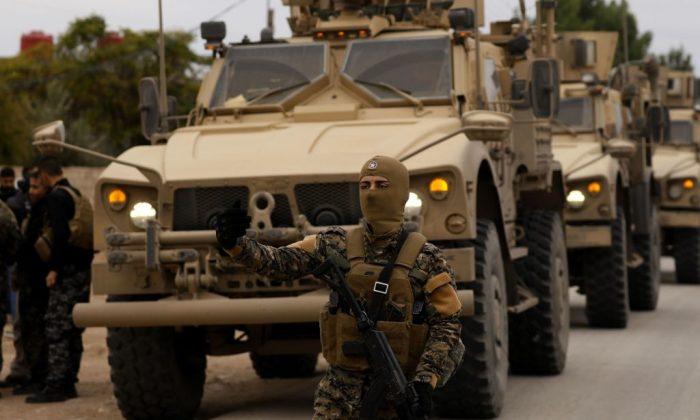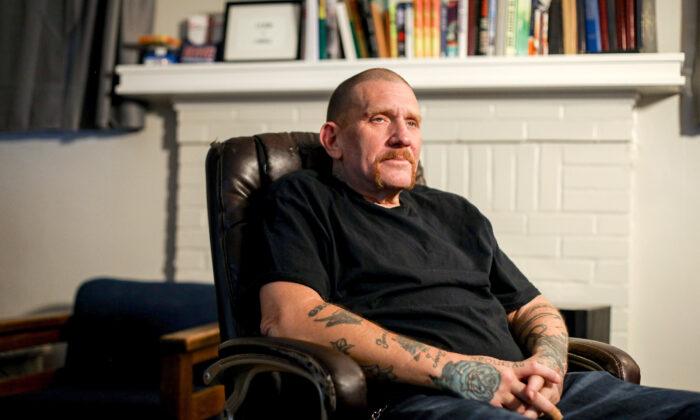The U.S.-led coalition in Syria continued to conduct air strikes against the ISIS terrorist group, American officials said Dec. 25, about a week after President Donald Trump announced his decision to withdraw 2,000 U.S. troops from the war-torn country.
From Dec. 16 to Dec. 22, the coalition said it conducted multiple strikes, including “precision air strikes” and “coordinated fires,“ that successfully destroyed logistics facilities and staging areas used by ISIS in the Middle Euphrates River Valley, and ”removed several hundred ISIS fighters from the battlefield.“ The attacks also damaged the group’s ability to fund its activities by targeting ”several ISIS financial centers and capabilities in Susah and As Shafah.”
The coalition partner forces said they would continue to advance and dig out the positions of ISIS fighters, describing the war zone as the “last remaining stronghold ISIS has in the region.”
One U.S. official said last week that a final decision hasn’t been made regarding air-campaign support in Syria, adding that he didn’t rule out “some kind of support for partners and allies.”
The coalition’s recent air strikes also signify the United States’ continued support for the Kurdish-led Syrian Democratic Forces (SDF) who have been an effective force against ISIS.
The United States has also told the U.N. Security Council that it’s committed to the “permanent destruction” of ISIS and would keep pushing for the withdrawal of Iranian-backed forces in the country.
The withdrawal of the U.S. troops could potentially open the region to the Turkish military. The SDF, with the U.S.’s support, has been fighting against ISIS for three years.
Israel Maintains ‘Red Lines’
Speaking to air force cadets at the Hatzerim Air Force Base on Dec. 26, Israeli Prime Minister Benjamin Netanyahu said that Trump’s decision to remove U.S. troops from Syria “does not change our policies—we will maintain our red lines in Syria and everywhere else.”Netanyahu said that “Operation Northern Shield,"—a part of Israel’s effort to thwart outside threats—will continue to eliminate Hezbollah attack tunnels. Hezbollah is an Iran-backed terrorist organization based in neighboring Lebanon.
Netanyahu also hinted that Israel was responsible for the recent air attacks against Iranian targets near Damascus, saying that Israel is acting against Iranian entrenchment in Syria “continuously and with firmness.”
“Defending the homeland starts with eradicating major hostile threats,” Netanyahu told cadets. “We are not willing to accept an Iranian entrenchment in Syria that is directed against us.”
Netanyahu pledged that Israel wouldn’t allow Iran to establish a permanent military presence in Syria, and that Israel’s air force had “special capabilities that no other country in the region has.”
Those capabilities, he added, include “weapons systems, defensive systems, and attack missiles that can reach everywhere and every target.”






Friends Read Free